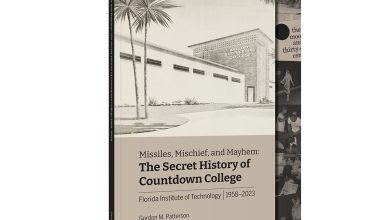Pirates, Revolutionaries, and Royalty: The Dutch Origins of Tea
By Kate Broderick, Global Strategic Communication ’13
It was the leading instrument in women’s rights, a leading contributor in globalization, and its addictive qualities caused two wars and ultimately brought down an empire. I am talking, of course, about tea.
Tea has been on my mind this week—the Netherlands Study Abroad program is hosting an afternoon tea this Friday at 4:00pm in the All Faiths Center as part of the Multicultural Campus Events Series. Tea is a quintessentially Dutch product. First arriving as an exotic export among the wares of the Dutch East India Company in the early 1600s, it became a staple of Dutch society by the 1630s.
Tea did not rise to prominence in England until 1662 when Charles II married the Portuguese Infanta Princess Catherine of Braganza, who brought two trunks of tea as part of her marriage dowry. Its connection to royalty would ensure its status as a prestige drink—and the fact that a pound of tea cost the equivalent of nine months wages for the typical British worker!
During the colonial era, America was very much a tea-drinking society. New York City, originally settled by the tea-drinking Dutch (which it is sometimes called New Amsterdam), drank more tea than all of England during the late 17th century. This fact would become crucial in the growing movement to independence (you learn about this event as part of your degree in Humanities).
As the popularity of tea continued to spread, the first tea salons opened. Tea salons were a major development of women’s rights, as for the first time women could socialize in a public venue without a male chaperone. This produced a change in the way society viewed women—no longer bound to the house or a male supervisor, women had the space to express and develop ideas (The use of tea as a medium of communication has been studied by communication specialists–perhaps something to be studied further in your classes in your degree in Communication).
The arrival of tea at port reached celebrations of mythic proportions: the town would shut down for the day as people would crowd the docks in anticipation of the arrival of tea. The ships were called tea clippers and designed for speed and maneuverability. The first vessel to arrive with tea was celebrated with pomp and circumstance—the crew and financiers reaching a celebrity akin to American Idol winners. Given the rewards awaiting the first arrival, competition among the tea clippers was fierce, often involving sabotage and piracy. The value of imported tea is hard to imagine today—we have written accounts from smugglers of the 18th century recommending to abandon gold bullion instead of tea, as tea was worth more.
Cue American revolutionaries. How do you express your fervent dislike to people who are not taking you seriously? You hit them where it hurts. The British had just levied a tax against imported tea in America, and the Bostonians seized their chance. On a cold December morning, irate colonists chucked 90,000 pounds of tea into the Boston Harbor—the value of which was greater than the entire treasury of the Crown. One year later, the colonists would formally declare their independence.
After losing the American colonies, England turned their gaze East. England’s addiction to tea continued to grow, producing an increasingly alarming imbalance in trade between China and the Crown; this prompted England to find an equally addictive substance as England was bankrupting itself to finance its tea collection. They discovered it in the poppies of their newly acquired lands in the East: opium. This event prompted two wars: the First and Second Opium Wars between China and England (you learn about this event in detail as part of your degree in Humanities in the course History of China).
Tea–the drink of royalty, of society, of revolutionaries, and pirates! Having heard the exciting history of tea and its Dutch connection, how can you resist partaking in an afternoon of tea with the Netherlands Study Abroad program? You’ve heard all you’ve ever wanted to know about tea—on Friday, you’ll learn about Dutch culture! Please join the department of Humanities and Communication at 4:00pm in the All Faiths Center on Friday, January 18th.





